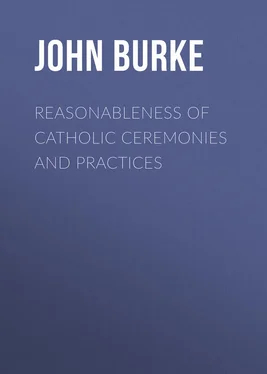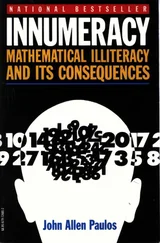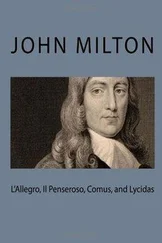John Burke - Reasonableness of Catholic Ceremonies and Practices
Здесь есть возможность читать онлайн «John Burke - Reasonableness of Catholic Ceremonies and Practices» — ознакомительный отрывок электронной книги совершенно бесплатно, а после прочтения отрывка купить полную версию. В некоторых случаях можно слушать аудио, скачать через торрент в формате fb2 и присутствует краткое содержание. Жанр: foreign_antique, foreign_prose, на английском языке. Описание произведения, (предисловие) а так же отзывы посетителей доступны на портале библиотеки ЛибКат.
- Название:Reasonableness of Catholic Ceremonies and Practices
- Автор:
- Жанр:
- Год:неизвестен
- ISBN:нет данных
- Рейтинг книги:3 / 5. Голосов: 1
-
Избранное:Добавить в избранное
- Отзывы:
-
Ваша оценка:
- 60
- 1
- 2
- 3
- 4
- 5
Reasonableness of Catholic Ceremonies and Practices: краткое содержание, описание и аннотация
Предлагаем к чтению аннотацию, описание, краткое содержание или предисловие (зависит от того, что написал сам автор книги «Reasonableness of Catholic Ceremonies and Practices»). Если вы не нашли необходимую информацию о книге — напишите в комментариях, мы постараемся отыскать её.
Reasonableness of Catholic Ceremonies and Practices — читать онлайн ознакомительный отрывок
Ниже представлен текст книги, разбитый по страницам. Система сохранения места последней прочитанной страницы, позволяет с удобством читать онлайн бесплатно книгу «Reasonableness of Catholic Ceremonies and Practices», без необходимости каждый раз заново искать на чём Вы остановились. Поставьте закладку, и сможете в любой момент перейти на страницу, на которой закончили чтение.
Интервал:
Закладка:
John J. Burke
Reasonableness of Catholic Ceremonies and Practices
"Let the children of Israel make the Phase in due time.. according to all the ceremonies thereof" ( Num. ix 2, 3).
"The priest shall be vested with the tunic" ( Lev. vi. 10).
"And he made, of violet and purple, scarlet and fine linen, the vestments for Aaron to wear when he ministered in the holy places, as the Lord commanded Moses" ( Ex. xxxix. 1).
"In every place there is sacrifice and there is offered to My name a clean offering" ( Malach. i. 11).
"And another Angel came and stood before the altar, having a golden censer: and there was given to him much incense, that he should offer of the prayers of all saints upon the golden altar, which is before the throne of God" ( Apoc. viii. 3).
The Ceremonies of the Catholic Church
THE Catholic Church in the celebration of Mass and in the administration of the sacraments employs certain forms and rites. These are called ceremonies. By these ceremonies the Church wishes to appeal to the heart as well as to the intellect, and to impress the faithful with sentiments of faith and piety.
What is more capable of raising the heart and mind of man to God than a priest celebrating Mass? What more inspiring than some of our sacred music?
How beneficial and how lasting the impression formed by the ceremonies of the Church, the following incident will show:
One of our missionaries once went to visit a tribe of Indians who had been deprived of a priest for nearly half a century. After traveling through the forest for some days he came near their village.
'Twas Sunday morning. Suddenly the silence was broken by a number of voices singing in unison. He stopped to listen. To his great astonishment he distinguished the music of a Mass, and of Catholic hymns well known to him.
What could be more touching than this simple, savage people endeavoring to celebrate the Lord's Day as they had been taught by the priest fifty years before? What more elevating than those sacred songs – the Stabat Mater , the O Salutaris , or the Te Deum – uttered by pious lips and resounding through the forest primeval? What better evidence could we have of the beneficial effects of our ceremonies in raising the heart to God?
And yet few things connected with our holy religion have been more frequently subjected to ridicule than her ceremonies. People scoff at them, laugh at them, call them foolish and unreasonable. Those people do not stop to consider that by doing so they, themselves, are acting most unreasonably. For no reasonable person, no judge, will condemn another without hearing both sides of the question.
These wiseacres, however, flatter themselves that they know all about the Catholic Church and her ceremonies without hearing her side of the case. Hence the misunderstandings and misrepresentations regarding her that exist among well-meaning people.
If people would but learn to speak about that which they knew and understood; if they would accord to the Catholic Church the same treatment as to other institutions; if they would examine both sides of the question before criticising and ridiculing her teachings and her ceremonies; if they would but treat her with that openness, that fairness, that candor, that honesty characteristic of the American citizen when dealing with other questions – what a vast amount of ignorance, of prejudice, of sin would be avoided!
We claim that ceremonies used in the worship of God are reasonable, because they were sanctioned by God in the Old Testament and by Jesus Christ and His apostles in the New Law.
I. Ceremonies Necessary to Divine Worship
THE angels are pure spirits. They have no body. Consequently the worship they render God is spiritual, interior.
The heavenly bodies are not spiritual, but entirely material substances. They render God a sort of external worship according to the words of the prophet Daniel, "Sun and moon bless the Lord… stars of heaven bless the Lord. Praise and exalt Him forever." Man has a soul, a spiritual substance similar to the heavenly bodies. He should, therefore, honor God by the twofold form of worship, interior and exterior.
"God is a spirit; and they that adore Him must adore Him in spirit and in truth" ( John iv. 24).
From these words of the beloved disciple we are not to conclude that interior worship is prescribed as the only essential, and exterior worship condemned. True piety must manifest itself externally. Man naturally manifests his feelings by outward signs and ceremonies.
The Catholic Church recognizes that man has a heart to be moved as well as an intellect to be enlightened. She enlightens the intellect by her good books, sermons, etc.; and she moves the heart by the grandeur of her ceremonies.
If any one doubts that God considers ceremonies necessary to divine worship, let him read the books of Leviticus and Exodus. Almost the whole of these books treats of the rites and ceremonies used by the then chosen people of God in their public worship.
The 26th, 27th, and 28th chapters of Exodus prescribe the form of the tabernacle and its appurtenances, the size of the altar and the oil for the lamps, and the holy vestments which Aaron and his sons were to wear during the performance of the public ceremonies.
The book of Leviticus treats more particularly of the sacrifices, rites, and ceremonies of the priests and Levites.
"And the Lord called Moses, and spoke to him from the tabernacle of the testimony, saying: Speak to the children of Israel, and thou shalt say to them: The man among you that shall offer to the Lord a sacrifice of the cattle, that is, offering victims of oxen and sheep, if his offering be a holocaust and of the herd, he shall offer a male, without blemish, at the door of the tabernacle of the testimony, to make the Lord favorable to him. And he shall put his hand upon the head of the victim, and it shall be acceptable and help to his expiation" ( Lev. i. 1 et seq. ).
After enumerating all the sacrifices and ceremonies, the sacred writer closes the book of Leviticus with the words, "These are the precepts which the Lord commanded Moses for the children of Israel in Mount Sinai," thus showing that He considers ceremonies necessary to divine worship.
The religion instituted by Our Lord and Saviour Jesus Christ is more spiritual than that of the Old Law. Nevertheless He did not discard ceremonies. In the Garden of Gethsemani He fell upon His knees in humble supplication. He went in procession to Jerusalem preceded by a great multitude strewing palm-branches on the road and singing, "Hosanna to the Son of David." Before He cured the deaf and dumb man, He put His fingers into his ears and touched his tongue with spittle, and looking up to heaven He groaned and said, "Ephpheta," which is, "Be thou opened."
At the Last Supper He invoked a blessing on the bread and wine, and after the supper He chanted a hymn with His disciples – ceremonies similar to those used in the Mass. When He imparted the Holy Ghost to His apostles, He breathed upon them. In a similar way they and their successors communicated the Holy Ghost upon others by breathing upon them, laying their hands upon them and praying over them, when conferring the sacrament of Holy Orders.
St. James directs that if any man is sick he shall call in a priest of the Church, who shall anoint him with oil, as is done in the sacrament of Extreme Unction.
We must, therefore, admit that ceremonies used in the worship of God are reasonable, since they are sanctioned by God in the Old Law and by Jesus Christ and His apostles in the New Testament.
Читать дальшеИнтервал:
Закладка:
Похожие книги на «Reasonableness of Catholic Ceremonies and Practices»
Представляем Вашему вниманию похожие книги на «Reasonableness of Catholic Ceremonies and Practices» списком для выбора. Мы отобрали схожую по названию и смыслу литературу в надежде предоставить читателям больше вариантов отыскать новые, интересные, ещё непрочитанные произведения.
Обсуждение, отзывы о книге «Reasonableness of Catholic Ceremonies and Practices» и просто собственные мнения читателей. Оставьте ваши комментарии, напишите, что Вы думаете о произведении, его смысле или главных героях. Укажите что конкретно понравилось, а что нет, и почему Вы так считаете.












